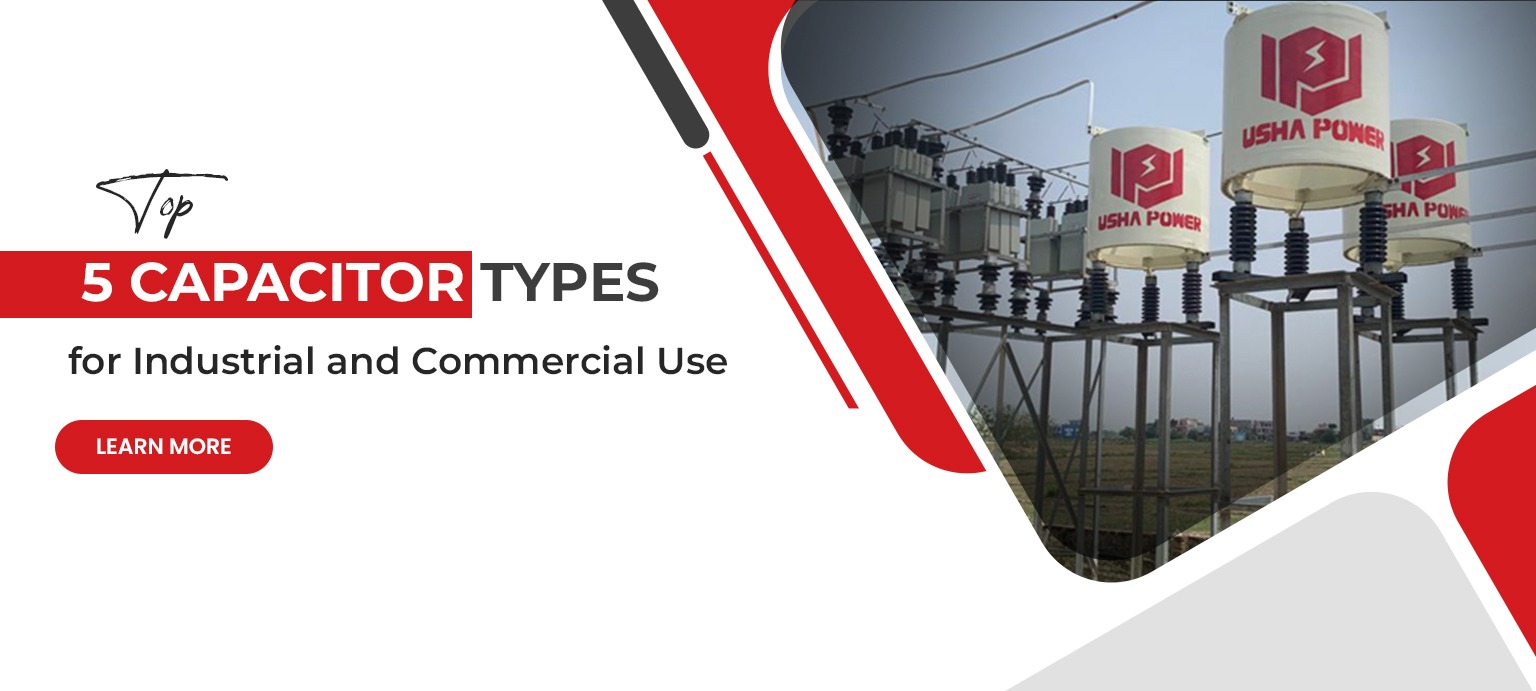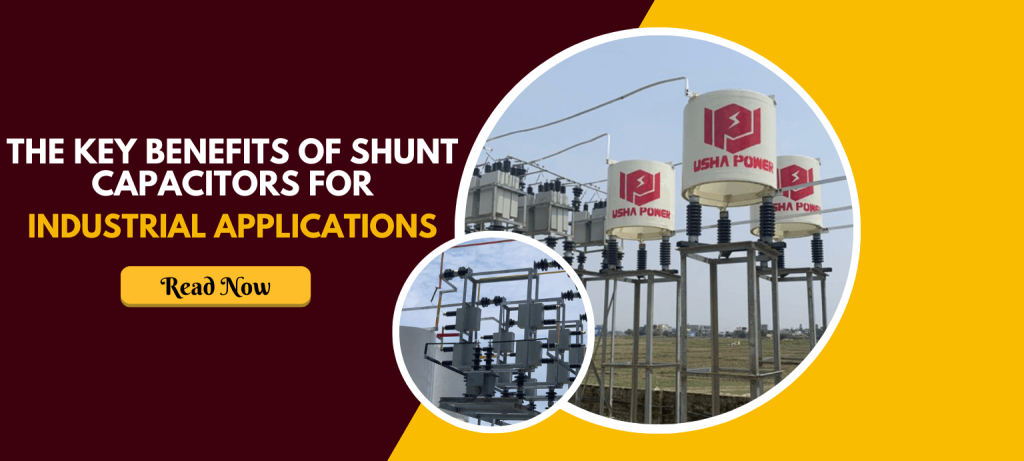Capacitors are essential components in industrial and commercial electrical systems, serving various purposes, from energy storage to filtering noise in power supply circuits. Selecting the right type of capacitor is crucial for ensuring efficient operation and reliability in applications ranging from power factor correction to energy storage systems. In this blog, we will explore the top 5 capacitor types used in industrial and commercial settings, highlighting their unique features and applications.
1) Electrolytic Capacitors
Overview
Electrolytic capacitors are widely used in industrial and commercial applications due to their high capacitance values and compact size. They consist of two conductive plates separated by an electrolyte, which allows them to store a significant amount of electrical energy.
Applications
These capacitors are commonly found in power supply circuits, where they stabilize voltage and smooth out fluctuations in power. They are also used in audio equipment, industrial machinery, and renewable energy systems, such as solar inverters, to provide the necessary filtering and energy storage capabilities.
Advantages
Electrolytic capacitors are known for their high capacitance values, making them ideal for applications requiring significant energy storage. They are also relatively inexpensive compared to other capacitor types, making them a popular choice for many industrial applications.
2) Ceramic Capacitors
Overview
Ceramic capacitors are another prevalent type used in industrial and commercial settings. They are made from ceramic materials and are known for their stability and reliability. Ceramic capacitors are available in various capacitance values and voltage ratings, making them versatile for different applications.
Applications
These capacitors are widely used in high-frequency applications, such as RF circuits and filtering systems. They are also employed in power supply circuits, motor drives, and audio equipment to reduce noise and ensure stable operation.
Advantages
Ceramic capacitors offer excellent temperature stability and low loss, making them suitable for applications requiring high reliability. They also have a small form factor, allowing for compact designs in electronic devices and industrial equipment.
3) Film Capacitors
Overview
Film capacitors are constructed using thin plastic films as the dielectric material, providing high insulation resistance and excellent stability. They come in various types, including polyester, polypropylene, and polycarbonate, each with unique properties suitable for specific applications.
Applications
These capacitors are commonly used in power factor correction systems, motor starting applications, and audio circuits. Film capacitors are also favoured in industrial automation and control systems due to their high reliability and low failure rates.
Advantages
Film capacitors are known for their long lifespan and high reliability. They can operate over a wide temperature range and are resistant to voltage spikes, making them ideal for demanding industrial environments.
4) Tantalum Capacitors
Overview
Tantalum capacitors are a specialized type of electrolytic capacitor that utilizes tantalum as the anode material. They offer high capacitance values in a compact size, making them suitable for various applications where space is limited.
Applications
These capacitors are often used in military and aerospace applications, as well as in medical devices and telecommunications equipment. Their stability and reliability make them ideal for critical applications requiring consistent performance.
Advantages
Tantalum capacitors have a high energy density, allowing them to store more energy in a smaller footprint. They are also known for their low leakage current, making them suitable for precision circuits where energy loss must be minimized.
5. Supercapacitors
Overview
Supercapacitors, also known as ultracapacitors, are high-capacity capacitors that bridge the gap between traditional capacitors and batteries. They can store a significant amount of energy and discharge it quickly, making them ideal for applications requiring rapid energy delivery.
Applications
These capacitors are commonly used in applications such as energy storage systems, backup power supplies, and regenerative braking systems in electric vehicles. They are also employed in industrial equipment to provide quick bursts of power when needed.
Advantages
Supercapacitors offer fast charging and discharging capabilities, allowing them to provide instantaneous power for short durations. They have a long cycle life and can withstand a large number of charge and discharge cycles, making them a reliable choice for various applications.
Final Thoughts
Understanding the different types of capacitors available is essential for selecting the right component for your industrial or commercial application. Each type of capacitor—whether it’s the high capacitance of electrolytic capacitors, the stability of ceramic capacitors, the reliability of film capacitors, the compactness of tantalum capacitors, or the rapid energy delivery of supercapacitors—has its unique advantages. By considering your specific needs and the characteristics of each capacitor type, you can ensure optimal performance and reliability in your electrical systems.
If you are looking for high-quality capacitors for your industrial or commercial sector, your search ends at Usha Power. We take pride in offering an extensive range of capacitor options designed to meet the diverse needs of various applications. Our dedicated team of experts is committed to providing outstanding service and technical support, ensuring that you find the perfect capacitor to enhance the efficiency and reliability of your operations. Choose Usha Power to support your business with innovative capacitor solutions that drive success.




